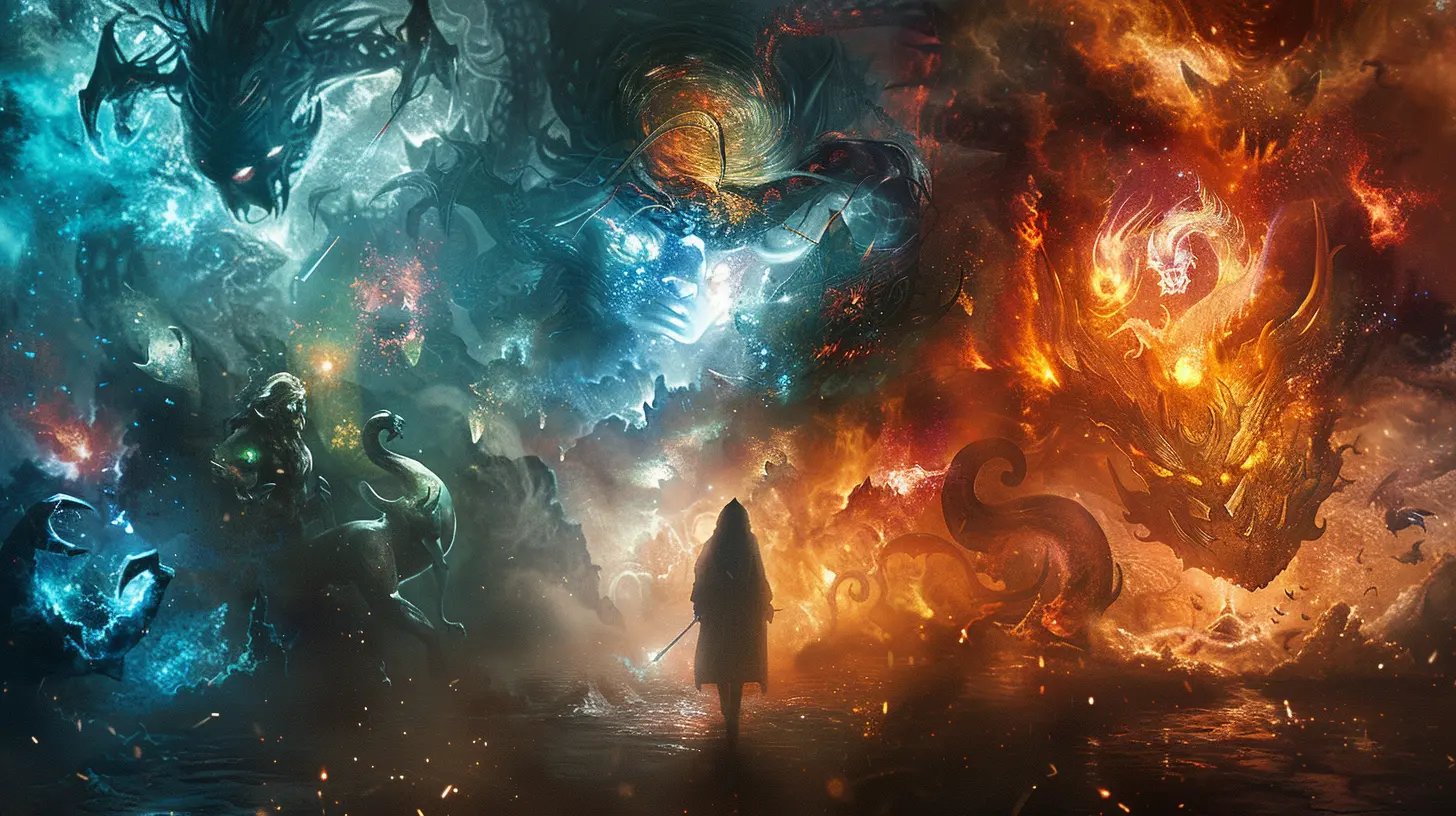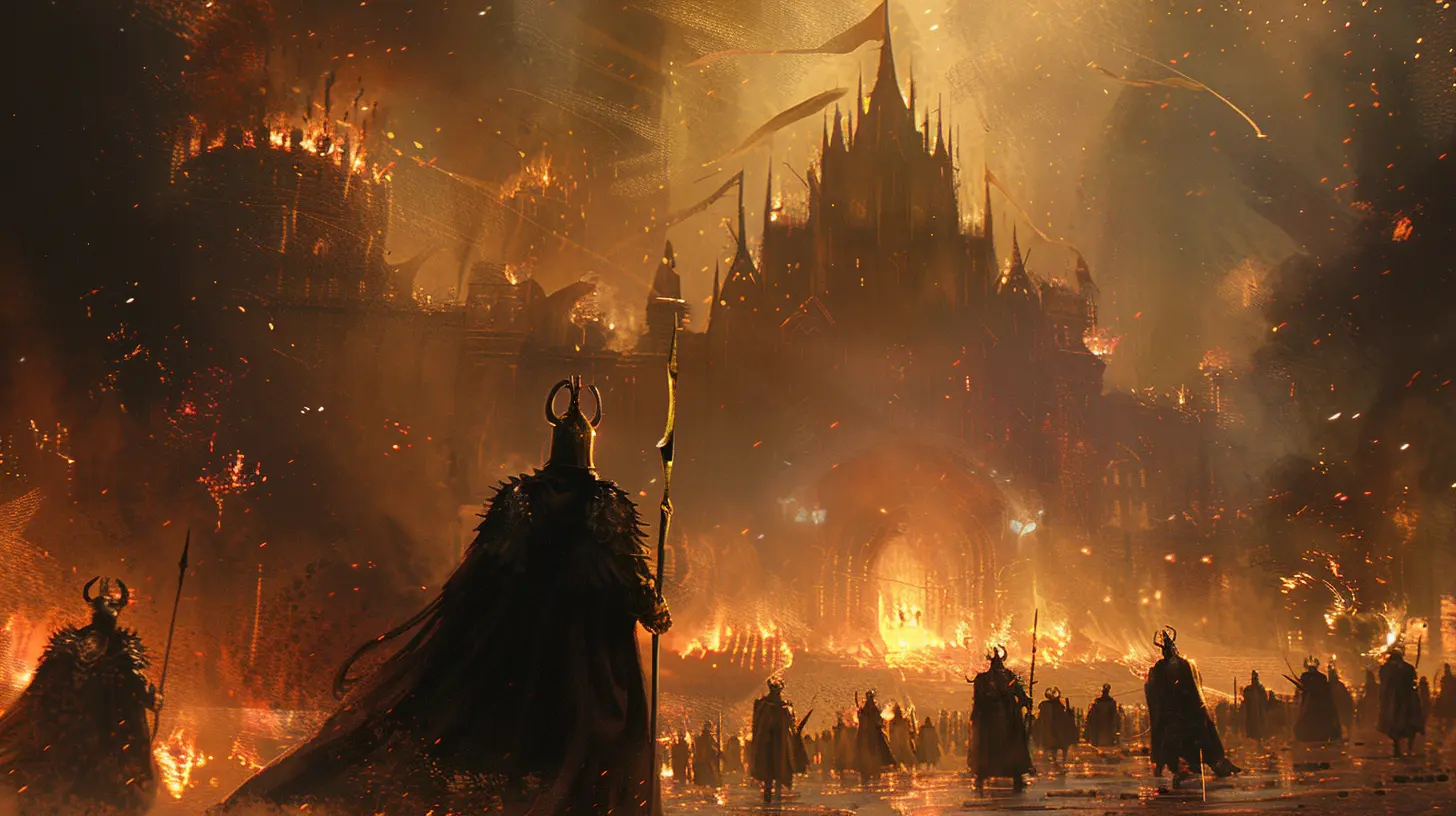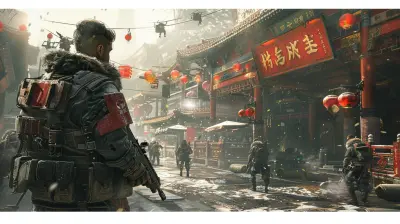6 April 2025
If you’ve ever been swept away by the high-stakes excitement of esports tournaments, you’ve probably noticed something most of us initially overlook: there’s more to a competitive gaming team than just the players on stage. Behind the flashy lights, roaring crowds, and the intense gameplay, a crucial figure operates in the shadows — the coach.
Coaching in competitive gaming, or esports, might not be as widely recognized as in traditional sports, but its significance is undeniable. In this article, we're diving deep into the often-overlooked but absolutely pivotal role coaches play in competitive gaming tournaments. So grab your gamer headset, and let’s hop into this!

What Does an Esports Coach Actually Do?
Let’s start with the basics: what’s the job description of an esports coach? Truth is, it’s not a one-size-fits-all job. The role of an esports coach can vary depending on the game, team size, and the style of the team, but at its core, coaching is about providing structure, strategy, and support.Think of an esports coach as the command center. They’re not the ones clicking the heads or pulling off those pixel-perfect plays, but they ensure everything behind the scenes is running like a well-oiled machine. From analyzing opponents’ strategies to keeping their team in the right headspace, the coach is like the glue that holds everything together.
1. Crafting and Refining Strategies
In competitive gaming, every second counts, and knowing your opponent’s next move can make all the difference. This is where coaches come in. They spend hours studying gameplay, analyzing match footage, and figuring out the “meta” (basically, what’s working best in the game right now).For example, in games like League of Legends or Dota 2, coaches lay down the groundwork for the team’s macro strategies — when to push, when to defend, when to secure objectives. For FPS games like CS:GO or Valorant, they analyze map control tactics, weapon choices, and positioning. In short, they’re like chess players, thinking three moves ahead and ensuring their team is ready for anything.
2. Improving Individual Player Performance
A coach isn’t just focused on the team as a whole; they also zoom in and work one-on-one with players. Maybe one team member struggles with consistency, or another player has excellent mechanics but makes risky decisions under pressure. Coaches spot these issues and tailor solutions to help players level up.It kind of reminds me of a personal trainer at the gym — they know your strengths, weaknesses, and how to push you just enough without burning you out. And trust me, having that extra set of eyes focused on your growth can make a world of difference.
3. Managing the Mental Game
Ever heard the phrase “gaming is 90% mental”? Well, it’s not far off. The mental aspect of competitive gaming is brutal. The pressure of performing in front of millions, the fear of making mistakes, and the constant grind can take a massive toll on players. This is why coaches often double as mental health advocates.They help players develop resilience, handle criticism, and keep their cool when the stakes are high. Some coaches incorporate sports psychology techniques, like visualization or mindfulness exercises, to ensure their team can stay sharp and perform under pressure.
In many ways, they’re the emotional anchor of the team — keeping everyone calm, focused, and motivated when the chips are down.
Why Are Coaches Vital in Competitive Tournaments?
Now that we’ve covered the “what,” let’s talk about the “why.” Why are coaches indispensable in the high-energy environment of competitive gaming tournaments? Spoiler alert: it’s not just about strategies and pep talks.1. Prepping for the Unknown
In tournaments, you’re up against the best of the best. Teams don’t always know who they’ll face next, or what curveballs their opponents have prepared. Coaches are the ones who pull late-night sessions, counter-strategizing and adapting to keep their team ahead of the curve.Imagine you’re preparing for a boss fight in a game, but you’re not sure what abilities the boss has. A coach is that person watching the boss’s every move, figuring out its attack patterns, and telling you when to dodge or strike. That’s the kind of preparation they bring to the table.
2. Unbiased Perspective
Players are hyper-focused during games, and sometimes, they’re too close to the action to see the bigger picture. Coaches provide an external, unbiased perspective. They can call out mistakes the players might not notice, or highlight opportunities they might have missed. It’s the classic “can’t see the forest for the trees” scenario, and the coach is there to steer the team back on track.3. Maintaining Team Dynamics
Gaming teams are often made up of diverse personalities. There’s the quiet, analytical genius, the charismatic leader, the aggressive risk-taker, and more. While this diversity is a strength, it can also create tension. Coaches act as mediators, ensuring that communication stays clear and conflicts don’t spiral out of control.They’re like the party leader in an RPG — keeping everyone synced and working toward the same goal. Without a coach, egos can collide, and the team’s synergy can fall apart.
Coaches Who’ve Changed the Game
Let’s take a moment to appreciate some of the legendary esports coaches who’ve left their mark on the scene. These are the folks who’ve proven just how impactful a coach can be:- Kkoma (League of Legends): Kkoma is a household name in the LoL community, leading SKT T1 to multiple World Championships. His ability to adapt strategies mid-tournament is the stuff of legends.
- zonic (CS:GO): As the coach of Astralis, zonic helped the team dominate the CS:GO scene for years. His emphasis on teamwork and discipline set a new standard for what coaching could achieve.
- Wiz (Overwatch): Although less celebrated, Wiz helped shape the Dallas Fuel by focusing on player mental health, proving that coaching is about more than just gameplay.
Challenges Coaches Face in Esports
Of course, being a coach isn’t all glory and success. It’s a demanding role, and coaches face unique challenges that are often overlooked.1. Staying Relevant in a Fast-Changing Meta
Games like Overwatch, Fortnite, or Apex Legends are constantly updated with patches, balancing changes, and new characters or weapons. Staying on top of these changes is like trying to keep up with every new trend on TikTok — exhausting, but necessary.Coaches have to quickly adjust their strategies to match the ever-changing meta, or risk falling behind.
2. Limited Recognition
Despite their importance, coaches don’t always get the spotlight. The glory often goes to the players, while the coach remains behind the scenes. It’s kind of like being the director of a blockbuster movie. Sure, your work is crucial, but the actors get all the limelight.3. Managing Burnout
Let’s be real — coaching is mentally draining. You’re juggling strategy, mental health, team dynamics, and often some late-night analysis sessions. Burnout is a very real risk, especially during intense tournament seasons.The Future of Esports Coaching
As esports continues to grow (and we’re talking billions in revenue), the role of coaches is only set to expand. Teams are already investing in specialized coaching staff, from strategy analysts to sports psychologists. It wouldn’t be surprising to see coaching become as structured and professional as it is in traditional sports.We’re also likely to see more advanced technology in coaching. AI tools that analyze gameplay and make suggestions in real-time? Yes, please.
Wrapping It Up
So, the next time you’re watching your favorite esports team duke it out on the grand stage, remember the mastermind behind the curtain — the coach. They’re the ones doing the unglamorous, behind-the-scenes work that keeps the team performing at its peak. From building strategies to keeping players mentally strong, they’re the unsung heroes of competitive gaming.In a world where milliseconds can decide victory, having a good coach is like having a cheat code. They don’t just guide the team; they push the boundaries of what’s possible. So here’s to the coaches — the real MVPs we don’t see enough of.





Xeno McKeever
Coaches in gaming tournaments are like the secret sauce on fries—sometimes you don't notice them, but when they're not there, you're just left with bland gameplay and a craving for more excitement!" 🍟🎮
April 12, 2025 at 3:25 PM